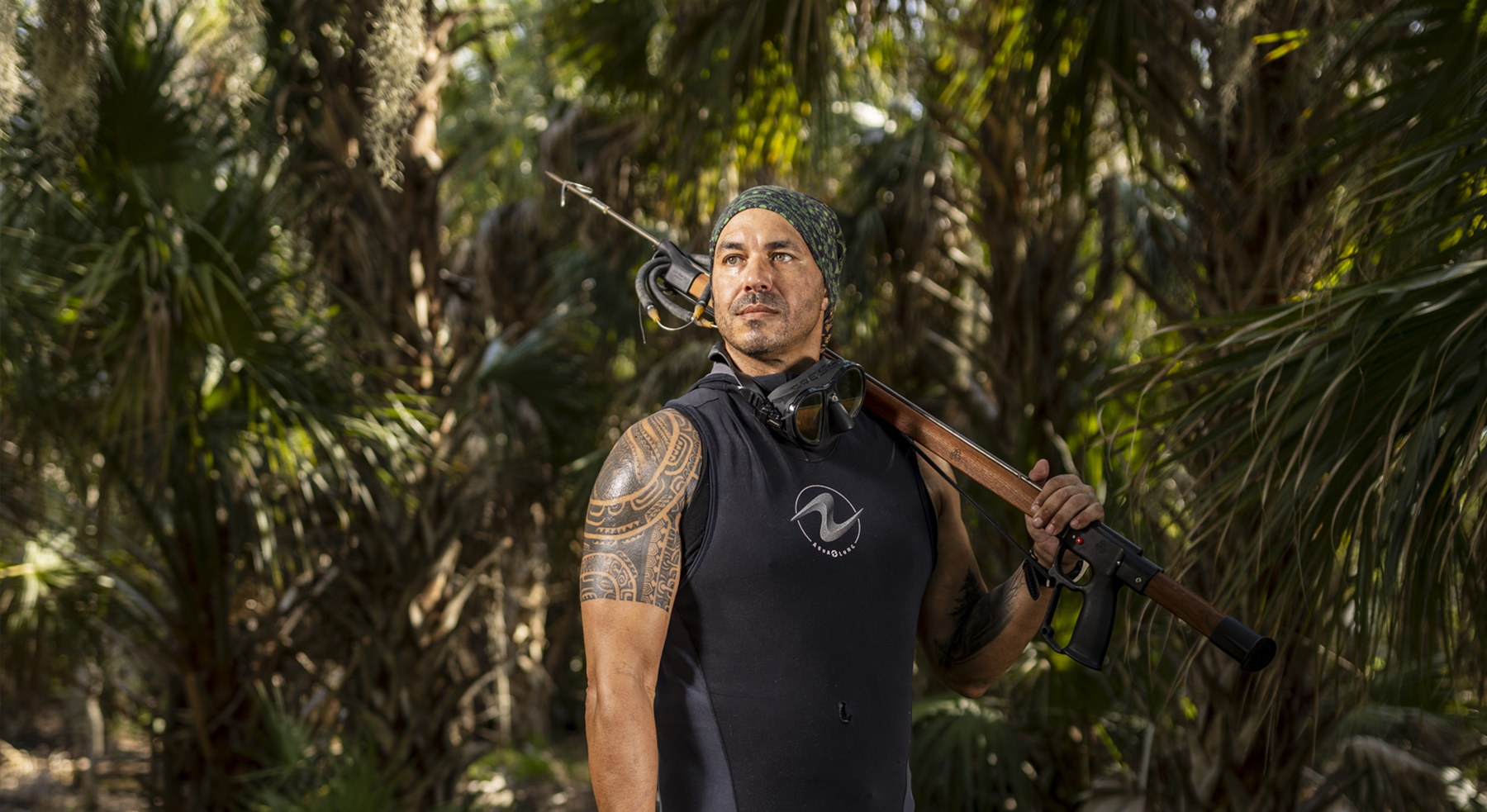

Purveyor of People’s Dreams
From diving with orcas in Norway to racing water buffalo in Bali, O’Neal Tutein ’94 wants to open the world to daring travelers.
It’s a big world, so let your imagination soar: Where would you like to go? Think beyond gazing out the window of a tour bus – this is an opportunity to stray far from the beaten path and interact with people and cultures for which you have no previous context. Let’s call it your dream trip. And O’Neal Tutein ’94 can make it happen for you.
A freelance outdoors adventure guide, Tutein has spanned the surface of the earth – and dived well beneath it – to deliver that experience to daring clients who want to taste something way beyond the norm. By doing so, he says, “you’re basically the purveyor of people’s dreams.”
Tutein has taken his clients spearfishing 120 feet below the surface, bungeed off the highest bridge-jumping surface on earth – 216 meters above the Bloukrans River at Tsitsikamma National Park in South Africa – and encountered dragons (the eponymous kind) while hiking Komodo Island in Indonesia. He’s also been swimming with orcas in the far northern reaches of Norway.
“You’re in the Arctic Circle, so just the journey there is arduous,” Tutein says, explaining how a series of flights and ferries takes you to a remote peninsula. He has come to the only place in the world where you can legally free-dive with orcas, and so with only about four hours of twilight per day in winter, Tutein and the crew run around in inflatable Zodiac boats before they jump into the icy water. It’s clear enough to see an orca swimming fifty yards away, and he says his first encounter was likely his favorite.
“I was in the water before anyone and swam about twenty yards from the Zodiac, alone, and these two females, probably each about 18 to 20 feet long, one on the right of me, one on the left, were facing me,” Tutein says. “They just hovered there, about 10 or 15 feet away from me, staring. I could just hear my heartbeat, and then I calmed down, but wondered: What are they going to do?”
One of the orcas soon departed, but the other curiously followed Tutein around the depths for some twenty minutes. Once they returned to the boat, the orca began “skyhopping” – sticking her head above the water to see her new friends on board.
“She put her tail up, and started putting on a performance for us,” he says. “It was amazing.”
I did something that’s been in tradition for hundreds of years, something people who aren’t local don’t do!
Tutein is no stranger to the extraordinary. As a receiver at Tulane, he caught just one pass in his collegiate career, but it went for a 58-yard touchdown. He also worked for years as an actor – “off-Broadway, a couple commercials,” he says. He earned his SAG card, but found he preferred getting away and exploring.
“I used to escape Los Angeles and drive up the coast, all the way up to Monterey every weekend,” he says. “I’d pitch a tent somewhere or go in a national forest and hike up, just get lost in the Sierras.”
After losing his father in late 2010, Tutein “had an epiphany that I just didn’t like acting.” Within six months, he was in Miami working for Dragonfly Acquisitions, a company that organizes high-end corporate ecotours. “I was like, that’s what I want to do in my life.”
Tutein started a venture tour company, but the staggering economy was not on his side. “Really high-end travel, you can’t really just jump into,” he says. “You’ve got to build a strong network over years and years.” He pivoted to diving instruction, which helped him develop a web of adventure seekers, whom he began taking on spearfishing excursions. Many of his local trips in Florida remain diving- and spearfishing-based.
In all of his explorations, Tutein is adamant about conserving the ecology and showing absolute respect for the cultures and traditions of the places he visits. Often, tours involve living history and exposure to local customs hidden from life in the United States. In Norway, he focuses on the culture of the Sámi, nomadic reindeer herders who have occupied these northern reaches for thousands of years. Tutein’s knowledge of places is earned firsthand through his own insatiable curiosity and desire to know people. On his first visit to a new locale, he’ll drive himself around, “because it’s the best way you can see it. You can stop when you want to stop. I’ll learn from somebody local.”
For example, he recalls searching for surf spots along the coast of western Bali. Approximately halfway across the island (and after a bit of planning), Tutein came across an ancient festival known as Makepung – a cultural tradition meaning “race to the finish line,” but while driving water buffalos.
“They run around this little muddy dirt track, racing in a little wooden cart,” he explains. “I had spoken to one of the locals, and I got to race. They actually put me on with a guy!”
Tutein’s delight in recounting the story is obvious – “I did something that’s been in tradition for hundreds of years, something people who aren’t local don’t do!” – but it underscores his approach to adventure tourism: as respectful observer, not centering himself in their environment or treating their customs as novelties to amuse tourists.
“You show them that’s a major reason why you’re there,” he says, “not just to utilize their resources, but to get to know their culture and the people.”
